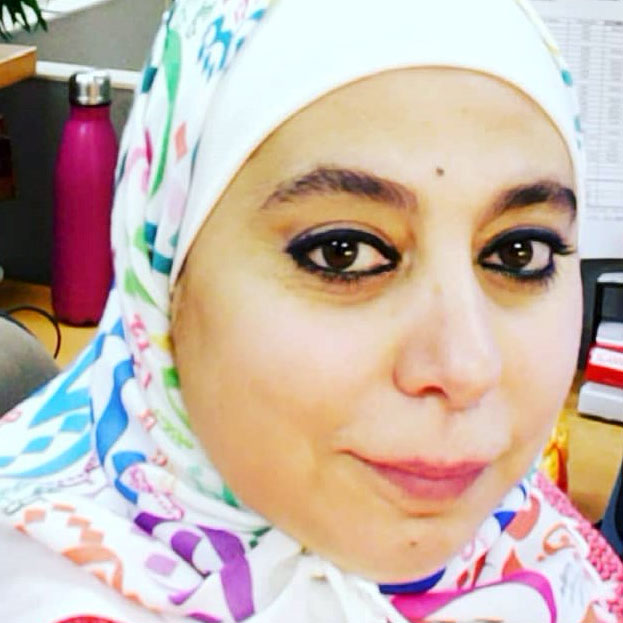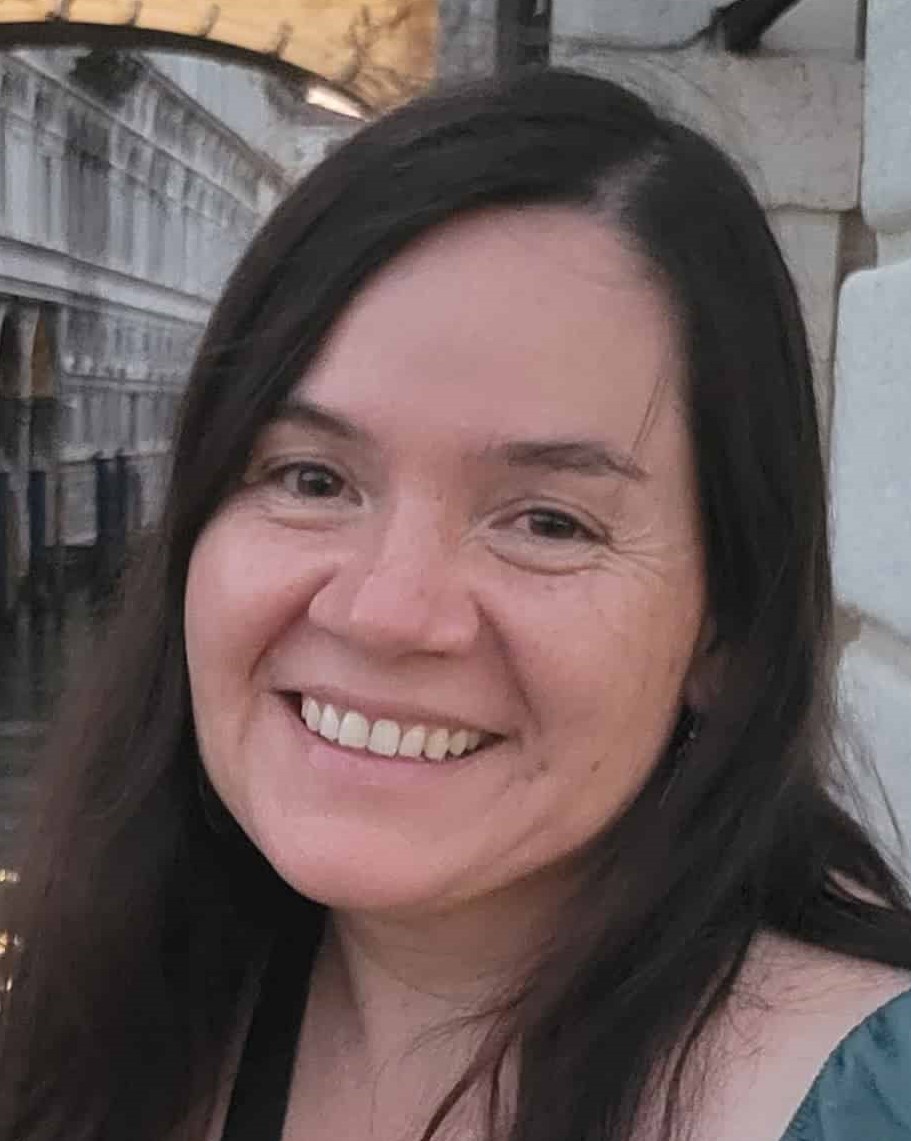Staff
Hugh Cagle
Director, International Studies
envelope hugh.cagle@utah.edu | phone 801-585-7804
Get to Know Hugh
I am an associate professor of history at the University of Utah, where I also direct the International Studies program. My research and teaching address a combination of science studies, comparative colonialism, and Latin American history (especially Brazil). My work has been generously supported by Rutgers University, Harvard University, the National Endowment for the Humanities, the Andrew W. Mellon Foundation, the University of Texas-Austin, the Center for Latin American Studies at the University of Kansas, the Tanner Humanities Center at the University of Utah, Portugal’s Fundação Luso-Americano, and the Society for the Social History of Medicine.
Education
PhD, Department of History, Rutgers University, 9/2011.
Research and Publications
I work in the combined areas of Latin American history (especially Brazil), comparative colonialism, and science and technology studies (STS).
My early research began as the history of a geographical idea, namely “the tropics.” From popular fiction to modern biomedicine, the tropics are defined by two essential features: prodigious nature and debilitating illness. That was not always so. In my first book, Assembling the Tropics, I show how such a vision was created. Along the way, I also challenge conventional accounts of the origins of the Scientific Revolution. The history of “the tropics,” I argue, is the story of science in Europe’s first global empire. Beginning in the late fifteenth century, Portugal established colonies from sub-Saharan Africa to Southeast Asia and South America, enabling the earliest comparisons of nature and disease across the middle latitudes of the globe. Assembling the Tropics is a story of how the proliferation of colonial approaches to medicine and natural history led to a vision of “the tropics” as a single, coherent, and internally consistent global region. This is a story about how places acquire medical meaning, about how nature and disease become objects of scientific inquiry, and about what is at stake when that happens.
Assembling the Tropics won the prestigious 2019 Leo Gershoy Award from the American Historical Association, and has won praise in top journals in fields ranging from Portuguese literature to history and science and technology studies.
I remain fascinated with the relationship between science and colonialism in the early modern world. My new work moves in two different directions. One project is a study of the practices of animal classification under Portuguese rule in Brazil and India. The other examines technologies of the Tupi-speaking peoples of Amazonia.
- Assembling the Tropics: Science and Medicine in Portugal's Empire, 1450-1700. New York: Cambridge University Press, 2018. Published, 10/2018.
- “Beyond the Senegal: Inventing the Tropics in the Late Middle Ages.” Journal of Medieval Iberian Studies. Vol. 7, no. 2 (2015): 197-217. This is a special issue which I co-edited with Iona McCleery. Published, 06/2015.
- "Cultures of Inquiry, Myths of Empire: Natural History in Colonial Goa." Pp. 107-128. In Medicine, Trade, and Empire: Garcia de Orta's Colloquies on the Simples and Drugs of India (1563) in Context. Edited by Andrew Cunningham and Palmira Fontes da Costa. Burlington, VT: Ashgate, 2015. Published, 05/2015.
- “The Botany of Colonial Medicine: Gender, Authority, and Natural History in the Empires of Spain and Portugal.” Pp. 174-195. In Women of the Iberian Atlantic. Edited by Sarah E. Owens and Jane E. Mangan. Baton Rouge: Louisiana State University Press, 2012. Published, 10/2012.
- “Age of Settlement and Colonization, 1500-1900.” Co-authored with Michael Adas. Pp. 41-73. In Ashgate Companion to Modern Imperial Histories. Edited by Philippa Levine and John Marriott. Burlington, VT: Ashgate, 2012. Published, 06/2012.
- Review of Daniela Bleichmar, Visible Empire: Botanical Expeditions and Visual Culture in the Hispanic Enlightenment. Chicago and London: The University of Chicago Press, 2012. In Itinerario 27 (2013): 129-131. Published, 09/2013.
- Review of Jane Burbank and Frederick Cooper, Empires in World History: Power and the Politics of Difference. Princeton, NJ: Princeton University Press, 2010. In Journal of World History 23 (2012): 943-945. Published, 12/2012.
- Review of Lauren Benton, A Search for Sovereignty: Law and Geography in European Empires, 1400-1900. New York: Cambridge University Press, 2010. In Itinerario 25 (2011): 104-106. Published, 08/2011.
- "Objects and Agency: Latin American Studies, Science and Technology Studies, and Global Histories of Knowledge in the Early Modern World." Latin American Research Review. Vol. 54, no. 4 (2019): 976-991. Article, Refereed Journal, Published, 12/2019. Published, 12/2019.
- “Science and Enlightenment in the Iberian World.” Co-authored with Matthew J. Crawford. The Iberian World. Edited by Pedro Cardim, Fernando Bouza Álvarez, and Antonio Feros. New York: Routledge. Published, 08/2019.
- Review of Linda Newson, Making Medicines in Early Colonial Lima, Peru: Apothecaries, Science, and Society. Leiden and Boston: Brill, 2017. In Journal of Latin American Studies. Accepted, 02/2019.
- “Imperial Tensions, Colonial Contours: Jesuits, Slavery, and Race Within and Beyond the Portuguese Atlantic.” Jesuits, Slavery, and Race Within and Beyond the Portuguese Atlantic.” Routledge Hispanic Studies Companion to Colonial Latin America and the Caribbean. Edited by Yolanda Martínez-San Miguel and Santa Arias. New York: Routledge. Accepted, 01/2019.
- Review of Pablo F. Gómez, The Experiential Caribbean: Creating Knowledge and Healing in the Early Modern Atlantic World. Chapel Hill: University of North Carolina Press: 2017. In Medical History 62 (2018): 133-135. Published, 01/2018.
- “Fluvial Communities and Amazonian Itineraries.” A review of Heather F. Roller, Amazonian Routes: Indigenous Mobility and Colonial Communities in Northern Brazil. Stanford: Stanford University Press, 2014. In Ethnohistory 65 (2018): 157-160. Published, 01/2018.
- Finnish translation of “The Botany of Colonial Medicine: Gender, Authority, and Natural History across Iberian Empires.” Originally published in Women of the Iberian Atlantic. Pp. 174-195. Edited by Sarah E. Owens and Jane E. Mangan. Baton Rouge: Louisiana State University Press, 2012. To be included in Contested Roads to Health: The Plurality of Healing Systems in Global History. Edited by Markku Hokkanen and Kalle Kananoja. Finnish title: Kiistellyt tiet terveyteen: Parantamisen monimuotoisuus globaalissa historiassa. Helsinki: Suomalaisen Kirjallisuuden Seura/Suomen Historiallinen Seura Helsinki, 2017. Published, 07/2017.
Susie Porter
Director, Latin American Studies
envelope s.porter@utah.edu | phone 801-585-5693
Get to Know Susie
Susie Porter, Professor in History and Gender Studies, has worked as a bartender, waitress, house cleaner, cashier, babysitter, secretary, and stuffing jelly doughnuts at a bakery. While there was much to love in all of these jobs, she chose studying history because, she says, it is liberating. It is liberating to know that things have not always been as they are. This means things can change. She chose a career in the humanities because it is a place where people can dream, create, and effect change.
Porter is the author of two award-winning books: Workingwomen in Mexico City: public discourses and material conditions, 1879-1931 (University of Arizona Press, 2003); and, From Angel to Office Worker: Middle-Class Identity and Female Consciousness in Mexico, 1890-1950 (University of Nebraska Press, 2018). Spanish-language version of both books were published by El Colegio de Michoacán press (2008 and 2020, respectively). Porter is co-editor of two volumes: Orden social e identidad de género. México siglos XIX y XX, with María Teresa Fernández Aceves and Carmen Ramos Escandón (CIESAS/ Universidad de Guadalajara, 2006); and, Género en la encrucijada de la historia social y cultural, with María Teresa Fernández Aceves (CIESAS/ El Colegio de Michoacán, 2015). Porter has also published a collection of historical documents, with Nora Jaffray and Ed Osowski (Westview, 2009), as well as numerous articles. She was designated Distinguished Professor in the Humanities at the University of Utah (2019). She serves as a country conditions expertise for asylum cases and was a founder of the Westside Leadership Institute (Spanish-language seminar).
Education
Ph.D., History, University of California, San Diego (Eric Van Young, Adivsor)
C.Phil. and M.A., History, University of California, San Diego
B.A., Latin American Studies, University California, Berkeley (with highest honors)
Research, Publications, and Interests
- “La Bola,” bilingual children’s story on the Mexican Revolution (submitted for consideration) Literary Arts, submitted 12/2010.
- “Gender, race, and the evolution of middle-class identity in the Mexico City press,1820-1900” in The Latin American Middle Classes, Claudia Stern, Mario Barbosa Cruz, and Ricardo López, eds. Routledge Press. Accepted, 05/01/2020.
- Susie S. Porter (2020). Digital Gender Collections at the Rosario Castellanos Library, Universidad Nacional Autónoma de México.”. Oxford University Press on-line. Accepted, 01/01/2020.
- Susie S. Porter & Ana Lau Jaiven y Elsie McPahil Fanger, eds (2019). De mujer hermosa a mujer poderosa: una biografía de Otilia Zambrano García” Rupturas y continuidades, Ana Lau Jaiven y Elsie McPahil Fanger, eds . (pp. 40pp.). Universidad Autónoma de México, Xochimilco.. Published, 01/01/2019.
- Susie S. Porter (2018). “Women and self-expression through textiles: past and present.” . Oxford University Press. Published, 09/07/2018.
- Susie S. Porter (2018). From Angel to Office Worker: Middle-Class Identity and Female Consciousness in Mexico, 1890–1950. University of Nebraska Press. Published, 06/01/2018. Link
- Orden social e identidad de género. México siglos XIX y XX, María Teresa Fernández Aceves, Carmen Ramos Escandón y Susie Porter, eds., (Guadalajara, CIESAS-Universidad de Guadalajara, 2006). Published, 01/01/2016.
- "DE OBRERAS Y SEÑORITAS: CULTURAS DE TRABAJO EN LA CIUDAD DE MÉXICO EN LA COMPAÑÍA ERICSSON, EN LA DÉCADA DE 1920," in Género en la encrucijada de la historia social y cultural en México. Published, 12/31/2015.
- “Introducción” en Género en la encrucijada de la historia social y cultural de México, México, CIESAS, El Colegio de Michoacán, 2015, 9-31. 978-607-9470-18-0 . Published, 12/31/2015.
- Género en la encrucijada de la historia social y cultural de México, México, CIESAS, El Colegio de Michoacán, 2015. 978-607-9470-18-0 Tiraje 500 ejemplares. Published, 12/31/2015.
- Masculinity and Sexuality in Modern Mexico edited by Víctor M. Macías-González, Anne Rubenstein. Albuquerque: University of New Mexico Press, 2012, for H-HistSex, 2,500 subscribers. Published, 09/01/2015.
- “Women and Labor in Twentieth-Century Latin America,” (Oxford University Press, on- line annotated bibliography, 2014). Published, 12/31/2014.
- Working Women, Entrepreneurs, and the Mexican Revolution: The Coffee Culture of Córdoba, Veracruz, by Heather Fowler-Salamini, Hispanic American Historical Review (2014) 94(3): 514-515.. Published, 01/01/2014.
- “Women, Welfare, and the State in Latin American history,” review of 6 books in Journal of Women’s History vol. 25 no. 3, 2013. Published, 01/01/2013.
- 2012 Runaway Daughters: Seduction, Elopement, and Honor in Nineteenth Century Mexico by Kathrine A. Sloan (Albuquerque: University of New Mexico Press, 2008) in Journal of the History of Sexuality (submitted). Published, 01/2012.
- “The Apogee of Revolution, 1934-1946,” A Companion to Mexican History and Culture, edited by William Beezley (Blackwell, 2011). Published, 10/2011.
- 2011 Contar las cosas como fueron, by Evangelina Corona, México: DEMAC, 2008, in Hispanic American Historical Review (February 2011). Published, 02/2011.
- 2011 Women’s Studies on the Edge, edited by Joan W. Scott. Duke University Press, 2008 in AFFILIA (February, 2011). Published, 02/2011.
- 2010 El trabajo en las calles; subsistencia y negociación política en la Ciudad de México a comienzos del siglo XX, por Mario Barbosa Cruz, Historia Mexicana no. 237, julio- septiembre, 2010. Published, 09/2010.
- Porter, Susie S. (2009). Mexican History. Westview Pr. Published, 09/08/2009.
- Mexican History: A Primary Source Reader, (Boulder, Colorado: Westview Press, June, 2009). Published, 01/01/2009.
- Mujeres y Trabajo: condiciones de trabajo y discursos públicos en la ciudad de México, 1879-1931 (Zamora: El Colegio de Michoacán, 2009). Published, 2009.
- Revolution within the Revolution, by Jeffrey Bortz, (Stanford: Stanford University Press, 2008) in Social History (2009). Published, 2009.
- 2003 Workingwomen in Mexico City: public discourses and material conditions, 1879-1931 (Tucson: University of Arizona Press, 2003) ---Awarded “Outstanding Book” award, Latin American Studies Association, Labor and Class Relations Studies Section, 2004. Published, 01/01/2008.
- Revolutionary Women in Postrevolutionary Mexico by Jocelyn Olcott in Hispanic American Historical Review, February, 2008 (88): 130-131. Published, 01/01/2007.
- “Empleadas públicas: normas de feminidad, espacios burocráticos e identidad de la clase media en México durante la década de 1930 in María Teresa Fernández Aceves, Carmen Ramos Escandón y Susie Porter, (eds.), Orden social e identidad de género. México siglos XIX y XX, (Guadalajara, CIESAS-Universidad de Guadalajara, 2006). Published, 02/01/2006.
- “Introducción,” Orden social e identidad de género. México siglos XIX y XX, María Teresa Fernández Aceves, Carmen Ramos Escandón y Susie Porter, eds., (Guadalajara, CIESAS-Universidad de Guadalajara, 2006). Published, 01/01/2006.
- “Empleadas: la necesidad económica, la moral sexual, hábitos de consumo, y el derecho de la mujer al trabajo” Signos históricos (enero-junio, 2004): 40-63. Published, 01/01/2004.
- Porter, Susie S. (2003). Working Women in Mexico City. Univ of Arizona Pr. Published, 10/01/2003.
- Spanish, fluent
- French, basic
- Portuguese, basic
Bryce Garner
Associate Director, Administration
envelope bryce.garner@utah.edu | phone 801-581-6702
Get to Know Bryce
Bryce graduated from the University of Utah with degrees in History and Asian Studies. After graduation, he worked in Japan for five years on the Japanese Exchange and Teaching Program. He has traveled extensively in Central America, East Asia, and Southeast Asia. He has language abilities in Vietnamese, Japanese, and Chinese. He has worked for the Center for Latin American Studies and the Asia Center since 2010.
Japanese, Vietnamese, and Chinese.
Learning a foreign language not only gives you the opportunity to communicate with people from other countries--whether you are traveling abroad or here in the US, it also gives you a deeper understanding of people and cultures that are different from your own, broadening and enriching your interaction with the world around you.
My first international experience was living in Cambodia for two years where I learned to speak Vietnamese. When I returned to college, I started studying Chinese and after two years of study I participated in a learning abroad program at Nankai University in Tianjin, China where I completed my third year of Chinese. After graduating from college, I lived and worked in Japan for five years on the JET program and learned Japanese while I lived there. Interspersed with these longer periods I traveled extensively in Central America, East Asia, and Southeast Asia.
Each of my international experiences have given me a different lens to view the world from. They have helped my career and have provided opportunities to interact with people from all over the world. Through my international experiences, I have struck up lifelong friendships that have enriched my life and made me a better person.
Education
Bachelor of Arts, Asian Studies, University of Utah
Bachelor of Arts, History, University of Utah
Kari Moore
Academic Program Manager
envelope kari.moore@utah.edu
Get to Know Kari
Spanish, and French but I don't remember any of it.
Language ability has been invaluable for me in my career thus far. I spent 3 years after graduation working for a nonprofit that served low-income families including a program for migrant farmworkers and would not have been able to effectively create relationships of trust and serve these families without being able to speak the language. Past my job being able to create relationships with people of different walks of life has opened my mind and heart to new perspectives that I wouldn't have gained otherwise. I also think that language gives you a new perspective on the world and on your own native language. There are a lot of words in English now that I have a better understanding of because they're used more frequently in Spanish and I have that context to use now in my native language. The beauty of learning a language is also that you're able to understand other languages to a degree that are a part of the same language family and it becomes easier to learn new languages.
I have traveled for leisure purposes to Italy, Mexico, and Peru. The bulk of my international experience took place while living in Peru as a missionary for The Church of Jesus Christ of Latter Day Saints in Lima. This was an incredible experience that opened my eyes to other cultures, beliefs, and ended up shaping my decision to eventually change my major from music to Latin American Studies with a focus on nonprofit management.
I took several years of Spanish in highschool but could hardly speak the language and it was this immersive experience and the kindness of the people in Lima that finally allowed me to learn Spanish and fall absolutely in love with it and the people there.
Patrick Cheney
Scholarship & Graduate Program Coordinator
envelope patrick.cheney@utah.edu
Get to Know Patrick
Patrick graduated from the University of Utah with a B.A. in Political Science and International Studies and M.A. in Latin American Studies. He speaks Guarani, an indigenous language of South America, and Nahuatl, an indigenous language of Mexico. He speaks Spanish, enjoys Latin American literature tremendously, and has experience as a Spanish language medical interpreter. He has worked on migrant rights projects as well as refugee resettlement. In elementary school, he once painted a tile that declared “Soccer rules” and is still convinced. He plays and applauds often.
Spanish (advanced), Nahuatl (advanced), Guarani (advanced). Brief studies of French and K'iche'.
Language learning is an epistemological rupture. It is charged. It is never ahistorical. The process cannot be extricated from the webs of systemic injustice, but perhaps can help to imagine beyond them.
I have spent close to three years in South America, living in Paraguay and Argentina, as well as other travels throughout the Southern Cone. I have traveled across Mexico multiple times and spent the most time in Sonora, Mexico City, Zacatecas, and Veracruz. I have focused on migrant rights projects, Latin American literature, and indigenous languages. I have presented at an academic conference in Puebla and participated in literary and language-learning workshops at a center for houseless rights in Buenos Aires.
I am grateful that my international experiences reframed my life in Utah as also international. Those experiences have helped unsettle my previous views on land and place. Also, my life is forever enriched for having watched Boca Juniors from the hallowed stands of La Bombonera.
Luciano Marzulli
K-16 Outreach Coordinator
envelope l.marzulli@utah.edu
Get to Know Luciano
Lu is a proud alum of the University of Utah and has worked in higher education since 2006. Professionally, Lu’s focus has been on advocacy and support for first generation college students and students of color. Through his outreach role in International and Area Studies, he looks forward to developing and maintaining community partnerships to continue this work. Lu enjoys street food, fiction books, comedy films and being outdoors. He is fluent in English and Spanish.
Lu es graduado de la Universidad de Utah y ha trabajado en instituciones/servicios post-secundarios desde 2006. Profesionalmente su enfoque ha sido en ayudar y apoyar estudiantes que son minorias o que son estudiantes de primera generación (los primeros en sus familias de asistir a la Universidad). A través de su papel dentro del departamento de estudios internacionales el esta entusiasmado de crear y mantener colaboraciones comunitarias para seguir apoyando estudiantes. Lu disfruta la comida de la calle, leer obras de ficcion, ver peliculas de comedia y pasar el tiempo afuera. Lu habla Inglés y Español.
Spanish, Italian, French, and Nahuatl.
I love being multi lingual. I feel like language ability has opened up worlds of understanding that didn't exist for me before. Half of my language learning has happened in adulthood and I wish I would have taken on more languages at a younger age when my brain was more adept to absorb them.
My international experience is travel based. I've made several trips to Mexico, in particular, Mexico City, Baja California, Oaxaca, and Merida. I've also visited Paris several times. All of my extended family lives abroad in Guatemala and Italy and I've also visited and traveled in those countries.
I'm grateful for the experiences I've had traveling abroad because it's a learning experience every time.
Blanca Yagüe
CLAC Coordinator
envelope blancayaguepascual@gmail.com | phone 801-581-6251
Get to Know Blanca
Bio coming soon!
Education
M.S., Amazonian Studies, Universidad Nacional de Colombia Sede Amazonia.
Project: "Haciendo comestible la ciudad: los indígenas urbanos de Leticia y sus redes
desde la Soberanía Alimentaria"
B.S., Environmental Sciences, Universidad de Granada.
Project: “Food Sovereignty Through Urban Agriculture in Leticia, Colombian Amazon”
Amanda Jarvis
Undergraduate Advisor
envelope amanda.jarvis@utah.edu
Education
M.A. in Middle East Studies (Emphasis: Persian),
University of Texas at Austin
H.B.A. in Middle East Studies (Emphasis: Persian),
University of Utah
Get to Know Amanda
Amanda Jarvis is from Utah and graduated from the University of Utah with a H.B.A. in Middle East Studies and a focus on Persian in 2015. She then attended the University of Texas at Austin and researched the role of leftist discourse Iranian-Venezuelan relations. She graduated with her M.A. in Middle East Studies from there in 2018. Since then, she has been working in different advising positions at Utah Valley University and now at the University of Utah.Canada, Mexico, and The Bahamas
Persian and Spanish
Armenian and/or Georgian
Learning another language helps you to become a better citizen of the world as well as your local communities. You’ll learn to see the world differently and understand more diverse groups. Learning another language also requires dedication and commitment which will help you in what ever fields you explore. Once you practice strategies for learning a language, you’ll likely see that quite a few subjects no longer seem so daunting. And of course, you’ll learn to laugh at yourself and realize you will make mistakes, but to keep going on.
I took a course about women in Iranian political history. It really changed the way I looked at how we write history, the sources we use, and the voices we center. I do not think any course prepared me quite as much for studying history at a graduate level.
Cindy Diaz Rey
Undergraduate Advisor
envelope cindy.diazrey@utah.edu
Get to Know Amanda
Cindy graduated from the University of Utah with a B.A. in Political Science, Latin American Studies, Art History, and a minor in Anthropology. During her undergraduate studies she researched environmental justice on rural and tribal communities and the politics of Indigenous identities. She is from Colombia and is very passionate about Indigenous history, art, and education.
More info soon.

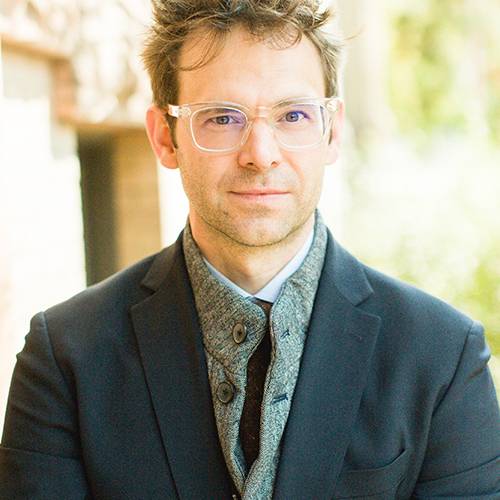
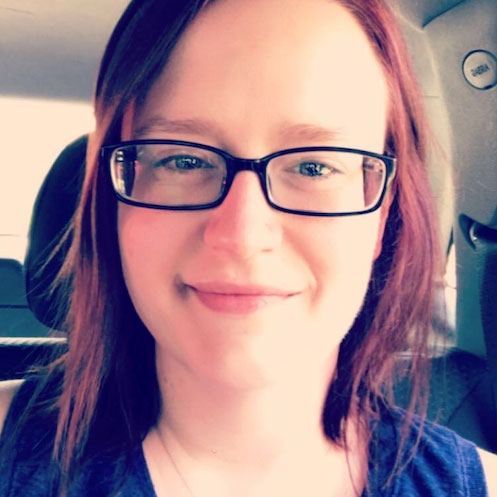
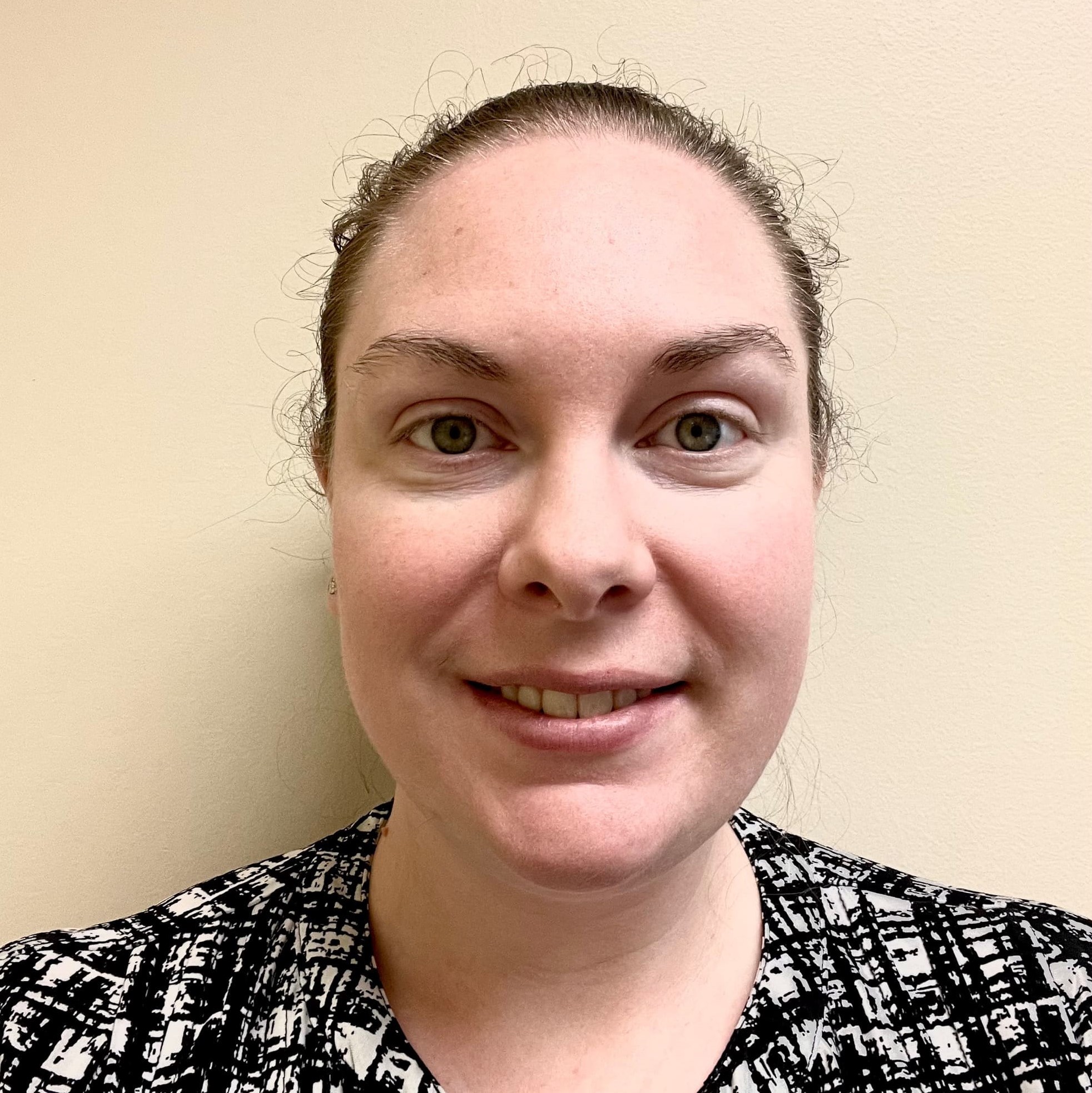
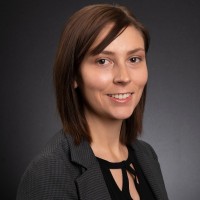
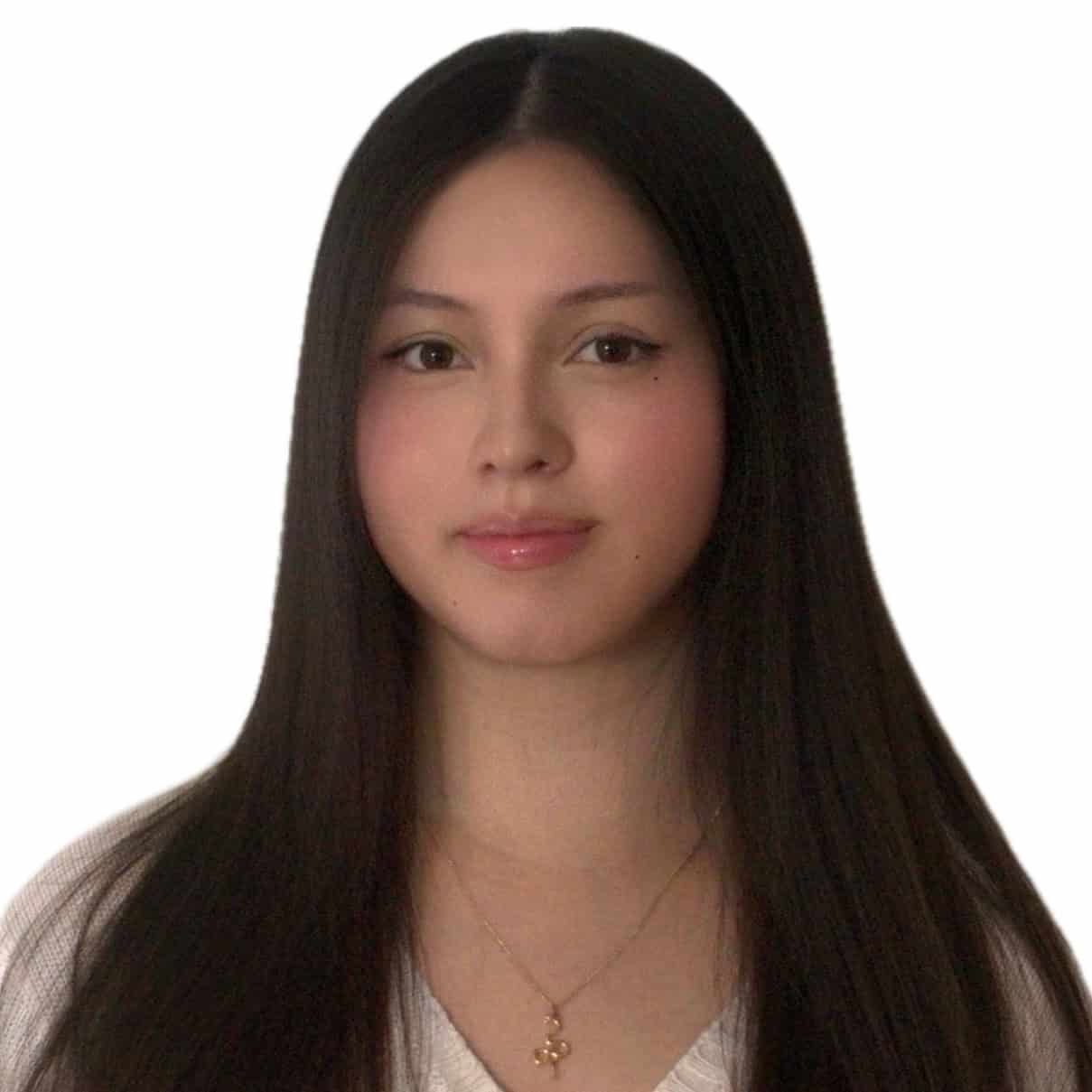 Cindy Diaz Rey
Cindy Diaz Rey